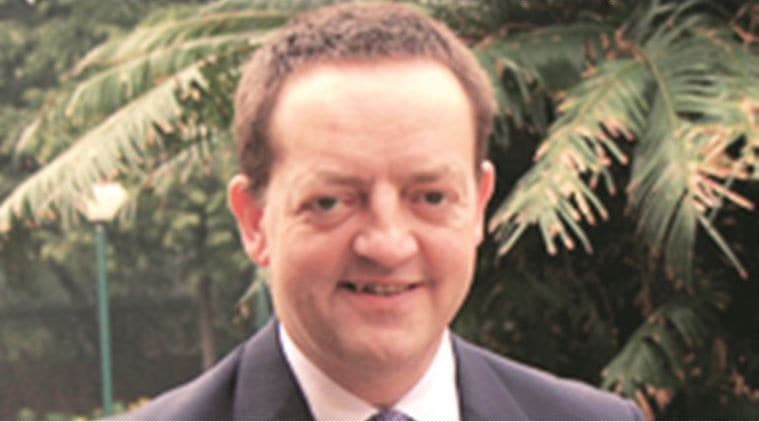 British Deputy High Commissioner to Gujarat and Rajasthan Geoff Wain was speaking at a press conference organised by a British knowledge process outsourcing firm QX. (File)
British Deputy High Commissioner to Gujarat and Rajasthan Geoff Wain was speaking at a press conference organised by a British knowledge process outsourcing firm QX. (File)
British Deputy High Commissioner to Gujarat and Rajasthan, Geoff Wain, on Wednesday said that following the Union Kingdom’s exit from European Union (EU), a large number of British companies are keen to invest in Gujarat. “The big change for us after the Brexit is that; before if a British company wanted to invest in Gujarat…it was seen as exporting jobs. Following Brexit, we are very clear now that we want British companies to invest in Gujarat. We are seeing a gradual increase in the number of people looking to invest in Gujarat,” said Wain at a press conference organised by a British knowledge process outsourcing firm QX.
“People are interested in Gujarat. They see it as safe and secure; the economy is strong here; political it is very stable; it is (Prime Minister Narendra) Modi’s home state,” he added. According to the British official, among the UK firms investing in Gujarat include a PVC manufacturer which is looking to invest Rs 9,300 crore for setting up a manufacturing facility in Gujarat. A UK-based ayurvedic medicine manufacturer is also keen to set up a base in the state, he said. “An ayurvedic company that currently manufactures in the UK is set to enter Gujarat this week,” the official said, adding that the British firms were interested in sectors like life-sciences, health-care, pharmaceuticals and chemicals.
“There are many Gujaratis in the United Kingdom who left Gujarat three generations ago and are now looking to reinvest in the state,” Wain added. Meanwhile, QX, an accounting and recruitment KPO firm is looking to expand its operations in Vadodara and set up its satellite offices in Rajkot or Surat. “We are looking to increase our employee strength to 3,000 in the next two to three years,” said Chris Robinson, chairman, QX, which started operations in Gujarat in 2003 with a staff strength of five persons.
The company is also considering to introduce robots and artificial intelligence to smoothen their manual processes. At present, 30 per cent of those employed by the firm are people from states like Rajasthan, Mumbai and Delhi. “When we had set up operations, Ahmedabad was seen as a backwater. We had a lot of difficulty in convincing people to come to the city. Now, there is a flood,” said Robinson.